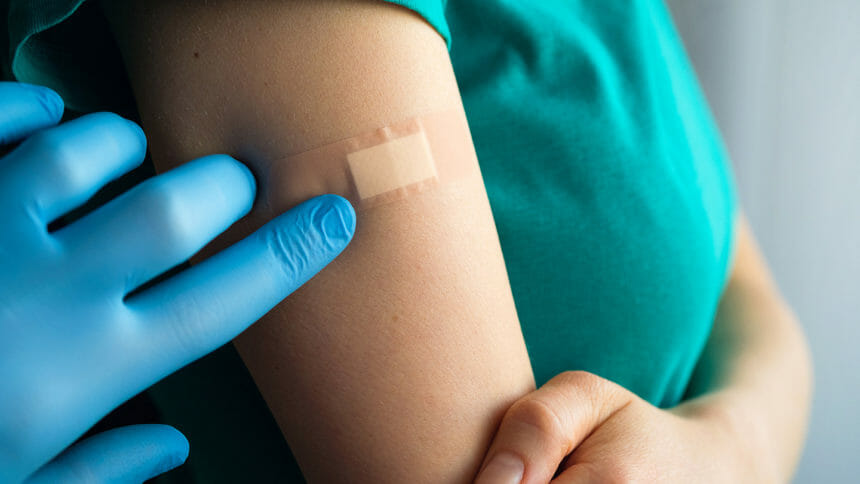
GSK announced on Tuesday that a single dose of its Arexvy vaccine against respiratory syncytial virus (RSV) was 43.3% effective in preventing severe illness three years after patients 60 and older first received the shot.
Additional data from the phase 3 trial showed the vaccine came with a 94.1% effectiveness in preventing severe RSV when people got it during the first season and 64.2% a year later, the company announced in a press release. The trial initially enrolled about 25,000 volunteers in 17 countries.
The results included efficacy against different subtypes of RSV, in adults who were between 70 and 79 years old, and in those with underlying medical conditions, according to the statement.
“We are excited by these new data which show that a single dose of Arexvy could help protect millions of older adults at risk of RSV disease over three seasons to benefit public health,” Tony Wood, GSK’s chief scientific officer, said in the statement.
GSK said it continues to submit its data to regulators to help them determine how often people should receive the vaccine.
Pfizer and Moderna also make RSV vaccines.
Experts in the US currently recommend a one-time RSV vaccine for adults 75 and older, and for those aged 60 to 74 who are at higher risk of severe illness due to health conditions or other factors.
Last month, a study published in the Canadian Medical Association Journal (CMAJ) found that clinicians and healthcare professionals should target the RSV vaccine to adults who were 70 and older and had underlying health conditions rather than giving it to everyone in the general population.
“We found that vaccination of older adults may be less costly and more effective than no vaccination and that vaccinating people aged 70 years and older with chronic medical conditions is likely to be cost-effective based on commonly used cost-effectiveness thresholds,” Ashleigh Tuite, PhD, a researcher from the Public Health Agency of Canada said in a press release about the study.



